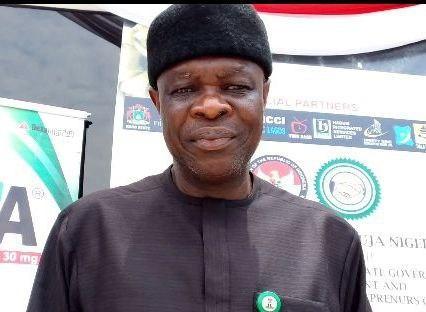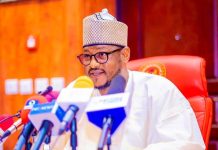Abba Hamisu Sani
Africa-Press – Nigeria. Nigerian Export Processing Zones (EPZs), also known as Free Zones, fall under the Federal Ministry of Industry, Trade, and Investment. Their primary function is to promote export-oriented manufacturing and other commercial activities by providing a favorable environment for businesses. This includes offering incentives such as tax exemptions, duty-free importation of machinery and raw materials, and streamlined regulatory processes.
The Nigeria Export Processing Zones Authority (NEPZA) is the agency responsible for establishing, licensing, regulating, and operating these zones.
There are 42 Free Zones in Nigeria, which can be operated by the public sector, private sector, or a combination of both. Kano Free Trade Zone is one of such facilities.
In this interview with Africa Press, Richard Bassey, the Head of Kano Free Zone, sheds light on how investors can gain access to the markets of other African countries through the Export Processing Zones and also export to other continents.
This interview was conducted as part of the sideline activities of the second edition of the Indonesian Trade Expo–Kano, held from 16th to 18th July 2025.
The event brought together about fifty companies and exhibitors from Indonesia.
What are the procedures investors need to follow to register at the Free Trade Zones?
“The procedures are very simple. Registration can be done online at www.nepza.gov.ng, or an interested investor can approach any Free Trade Zone located in different parts of Nigeria, depending on the investor’s preferred location. The investor can obtain an investment application form for $750. However, the government is passionate about encouraging Nigerian investors, so the registration fee can also be paid in the naira equivalent at the official government rate.
Once the form is issued, the next step is to conduct a feasibility study on the investment. In that study, the investor must explain what they intend to do, the production mechanism, the environmental impact assessment, trading profit and loss analysis, cash flow analysis, production procedure, the source of funds, and the amount to be invested in the project.
You submit the feasibility study along with the completed form, and at the Kano Free Trade Zone, we are proud to say we are the home of the warmest welcome. If you meet the requirements, we will give you provisional approval in just one day,” Bassey said.
Is it possible for both local and foreign investors to complete the process within the same day?
Yes, both local and foreign investors can complete the process in one day. You can quote me on that. Once we give the approval, the investor can proceed to pay for the licenses, complete the registration process, and you’re in.
“Our land is the cheapest in the world at 60 cents per square metre annually. We don’t sell it; we only rent it. Then you can start your business—simple,” he added.
Sometimes investors find it difficult to stay far from their industries. Do you have any facilities or provisions for them to stay within the zone?
Yes, we have investor suites within the facility. We offer three-bedroom flats, two-bedroom apartments, and one-bedroom apartments, depending on the investor’s capacity. And I tell you—we are running out of all of them.
Currently, many investors are coming from Indonesia, as you addressed during the Indonesia Expo in Kano. What was the focus of your presentation?
The focus was to tell Indonesian investors that Nigeria has grown beyond being just a consumption economy. The country is evolving into a production economy. Instead of staying in Indonesia and bringing goods, they should come to Nigeria. All levels of labor—skilled, semi-skilled, and unskilled—are available in large quantities and at a cheaper cost.
“You can come here, produce these things, and export. Nigeria is the largest market in West Africa and in Africa as a whole. You can also produce in Nigeria and export to the USA. As I told them, under Trump’s tariff regime, the tariff on Indonesian goods is higher than that on Nigerian goods. So, they can produce here and export to America because the goods leaving here are exported as ‘Made in Nigeria.’ You see the advantage,” the Head of Kano Free Trade Zone stated.
How do you educate investors from different countries outside Africa to understand the existence of such initiatives in Nigeria, considering that most of them view Africa as one single nation rather than a continent?
When we meet them or they send their inquiries, we look at the peculiarities of each inquiry and address them accordingly. Nigeria is a good country; we have a pro-investment government that is tailored toward helping investors grow their businesses. Nigeria is one country with a large population, so they can come in, take advantage of the population, establish companies, and begin production, as the market is readily available. They can also benefit from the abundant mineral resources.
“Look at the mineral deposits in Zamfara—we have a lot of gold there. Instead of engaging in illegal mining, come in and establish your plant, process it into top quality, then export it. This will help in bringing foreign exchange,” Bassey stressed.
NEPZA was established in 1992. Its Act aimed to reduce Nigeria’s dependence on oil revenue by fostering export-oriented manufacturing and other industries.
While initially focused on export processing, the Agency’s scope has expanded to include other sectors like oil and gas, with the establishment of Oil and Gas Free Zones.
One such zone, Lekki Free Zone in Lagos State, hosts the Dangote Petroleum Refinery and Petrochemicals—a facility with a capacity of 650,000 barrels per day, making it Africa’s biggest oil refinery and the world’s largest single-train facility.
For More News And Analysis About Nigeria Follow Africa-Press







